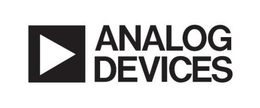 Production
Production
Does graphene cause or prevent the corrosion of copper?
Graphene has attracted the interest of researchers in recent years because, despite its apparent anti-corrosive properties, its proximity was seen to increase the corrosion of copper. A research team from Chung-Ang University used Raman spectroscopy to analyse graphene’s properties over a long period and found that the corroded surface of copper forms a hybrid layer with graphene, which prevents further corrosion.
Renishaw loans schools 3D printers for a second year
After a successful pilot year of its 3D printer loan scheme, where Renishaw loaned 30 local schools a 3D printer for three months, the company has continued the project for a second year. In total, 21 primary schools and nine secondary schools in South Wales were loaned a 3D printer in the last academic year, covering four local authorities around the Renishaw Miskin site in South Wales.
Five ways real-time analytics can improve manufacturing
Manufacturers are continually looking for ways to improve efficiency and output, not just to increase profits but also to streamline operations and lower costs. Many new and emerging technologies have helped make optimisation possible, mainly through automation and a wealth of insights. By Kayla Matthews
Five top tips for soldering processes
Here, Hakko has offered Tech Tips examining some of the most frequently asked questions regarding soldering and de-soldering, fielded regularly by our technical support team. For more than 60 years, Hakko has designed a wide range of soldering and de-soldering solutions that make quick and easy work of different applications, which improve performance, reduce costs and improve work-in-progress.
The key to sourcing effective replacement coatings
Industrial gas turbines rely on specialised coatings to deliver continued performance and reliability. Renewing these protection systems is an important part of the routine maintenance schedule and the quality of the new coatings is dependent on attention to detail and the expertise of the refurbishment team. With a high level understanding of the processes, it is possible for operators to assess this expertise and select the most suitable suppli...
Overcoming oxygen inhibition in UV light curing
Sometimes cured UV adhesives have a tacky or sticky surface, even after being exposed to the correct amount of UV light, due to a phenomenon called oxygen inhibition. However, with a full understanding of the process, manufacturers can achieve tack free cures. Here Matt Baseley, Senior Technical Salesperson of adhesives specialist Intertronics, has explained how to avoid a tacky surface after curing.
3D printing a catalyst for Industry 4.0
The variety of technologies compromising Industry 4.0 are now numerous, but it is the Industrial Internet of Things (IIoT), advanced industrial robotics (AIR), and 3D printing that are the driving forces behind the fourth industrial revolution, which is reorganising manufacturing and supply chains. Quocirca’s Louella Fernandes explains.
Demand for plasma applications prior to conformal coating process
Due to increasing miniaturisation and packing density on assemblies Plasmatreat has recorded a higher demand for Openair-Plasma in combination with conformal coatings in electronic manufacturing. Plasma application as pre-treatment to conformal coating of assemblies and components ensures that the process window for conformal coating is widened, guaranteeing long-lasting connections and functionality.
The art of 3D: Creative technology for the ages
There has never been greater opportunity for creative freedom as there is today. With access to powerful software and hardware, professionals in creative industries today are able to put all of their efforts into bringing their vision to life – without being held back by technology. By Pawel Jaruga, 3D Artist, Poland
How to achieve bubble-free mixing
There are many industrial processes which require fast mixing of liquids, pastes and powders, and where the uniformity and homogeneity of these mixes is vital. These include adhesives, inks, cosmetics, pharmaceuticals, sealants, LED phosphors, nanoparticles, dental materials and more.










